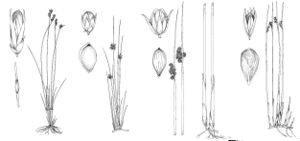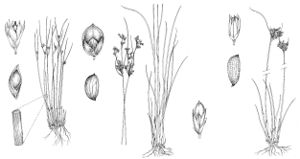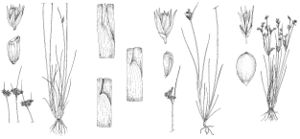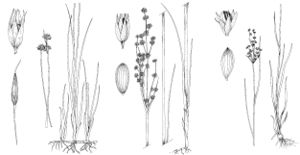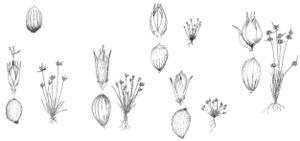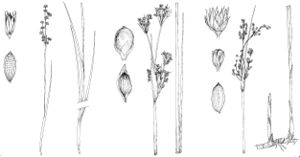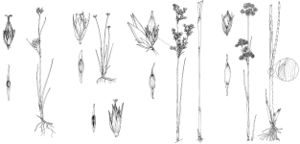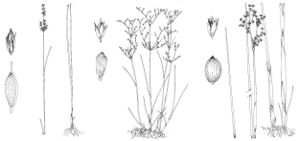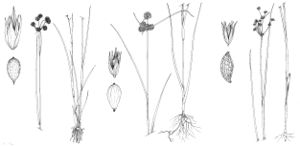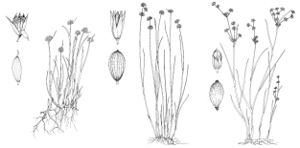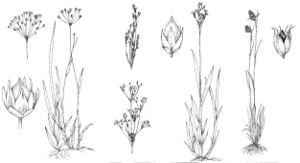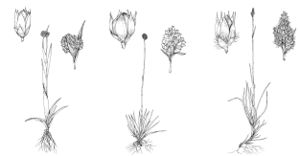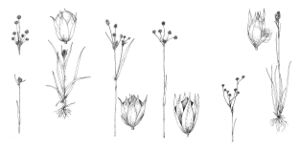Juncaceae
Herbs, perennial, occasionally annual, usually rhizomatous, orsometimes cespitose. Culms round or flat. Leaves mostly basal; sheath margins fused or overlapping, often with 2 earlike extensions (auricles) at blade junction; blade flat or round, glabrous or margins hairy. Inflorescences of headlike clusters or single flowers variously arranged; bracts subtending inflorescence 1 or more2, mostly leaflike; bracts subtending inflorescence branches 1–2, reduced; bracteoles subtending solitary flower 0–2, translucent, reduced. Flowers usually bisexual, radially symmetric; sepals and petals similar, persistent, green to brown or purplish black; stamens usually 3 or 6; anthers persistent, linear; pistils 1; ovaries superior, locules 1 or 3, placentas 1 and basal or 3 and axile or parietal; stigmas generally longer than styles. Fruits capsules, loculicidal. Seeds 3–many, often with white appendages on 1 or both ends.
Distribution
Arctic and temperate regions, tropical mountains
Discussion
Genera 9, species ca. 350 (2 genera, 1108 species in the flora).
